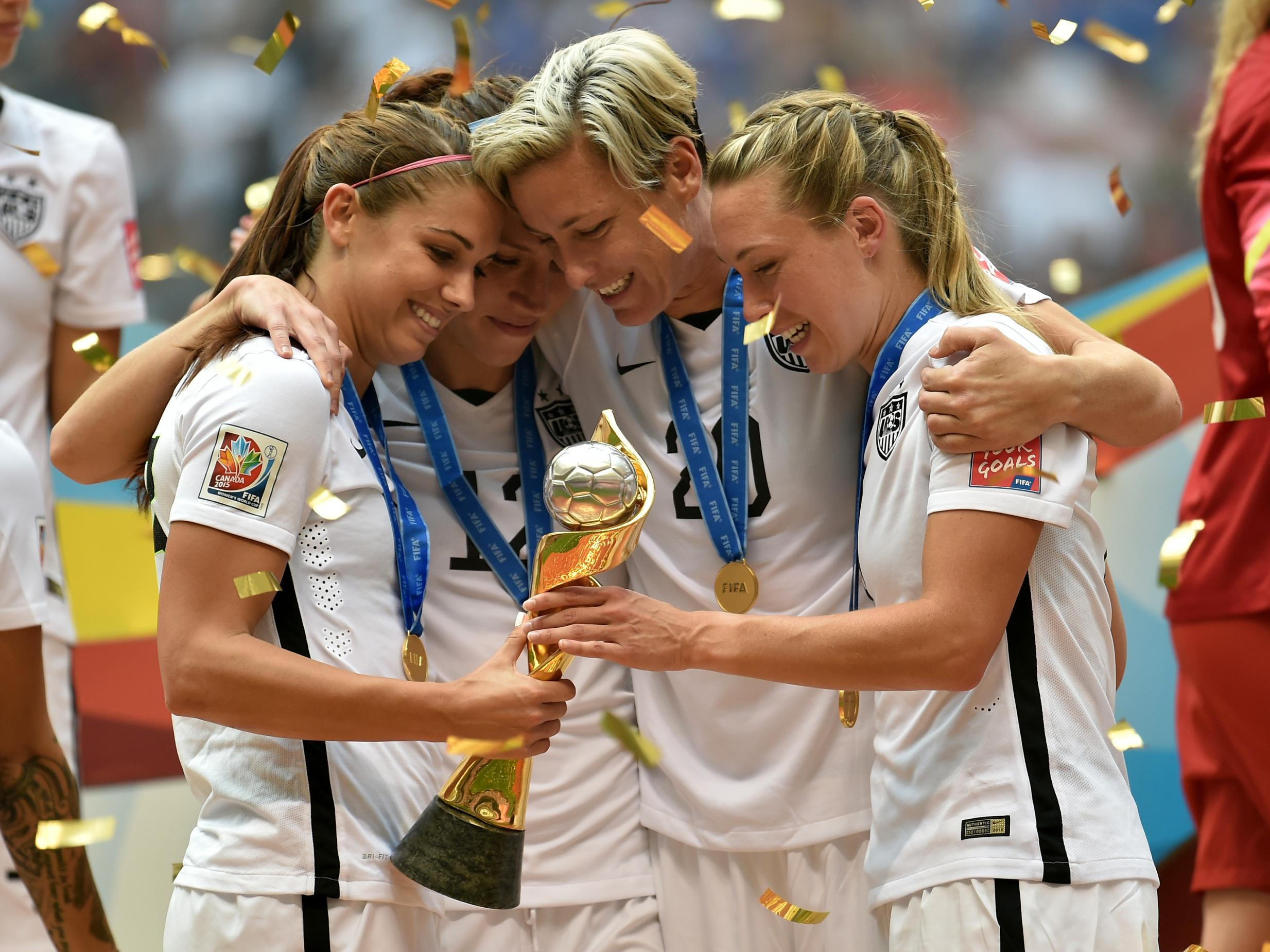Women’s World Cup 2023: North and South Korea come together among record nine bids
The other bids come from Argentina, Australia, Bolivia, Brazil, Colombia, Japan, New Zealand and South Africa

Your support helps us to tell the story
From reproductive rights to climate change to Big Tech, The Independent is on the ground when the story is developing. Whether it's investigating the financials of Elon Musk's pro-Trump PAC or producing our latest documentary, 'The A Word', which shines a light on the American women fighting for reproductive rights, we know how important it is to parse out the facts from the messaging.
At such a critical moment in US history, we need reporters on the ground. Your donation allows us to keep sending journalists to speak to both sides of the story.
The Independent is trusted by Americans across the entire political spectrum. And unlike many other quality news outlets, we choose not to lock Americans out of our reporting and analysis with paywalls. We believe quality journalism should be available to everyone, paid for by those who can afford it.
Your support makes all the difference.A joint proposal from North and South Korea is among a record nine bids for the 2023 Women’s World Cup, football’s world governing body Fifa has announced.
The other bids come from Argentina, Australia, Bolivia, Brazil, Colombia, Japan, New Zealand and South Africa, which means four of football’s six confederations – Africa, Asia, Oceania and South America – are represented in the contest.
Having formally expressed their interest in hosting the ninth Women’s World Cup, the 10 federations involved now have a month to return their bidding registrations and until October to submit their bid books, signed hosting agreement and all other related documents.
Unlike the men’s tournament, which is voted on by all 211 member associations at a Fifa Congress, the winner of this race will be decided by a vote of Fifa’s 37-strong ruling council next March.
In a statement, Fifa said it “will implement a fair and transparent process, which will include a clear evaluation model as well as a concrete commitment to sustainability and human rights”.
Fifa introduced a human rights element to its bidding contests in 2017 following widespread criticism of the decision to award the 2018 and 2022 World Cups to Russia and Qatar, respectively.
According to its 41-page “Overview of the Bidding Process”, Fifa will require the “implementation of human rights and labour standards” by the bidding federation, the government and “other entities” involved in organising the event, including those who build or renovate stadiums, training bases, hotels and airports.
While the joint Korean bid will undoubtedly attract the most interest, Australia were the first to declare their interest and are probably the front-runners in terms of their media campaign.
The announcement of nine potential hosts is a far cry from the last two bidding races when there were only two bidding federations for the 2015 and 2019 editions of the tournament. And the fact they are all new would-be hosts is another indication of the growth of the women’s game.
This year’s tournament is being staged in France between 7 June and 7 July, with England and Scotland among the 24 nations taking part.
PA
Join our commenting forum
Join thought-provoking conversations, follow other Independent readers and see their replies
Comments